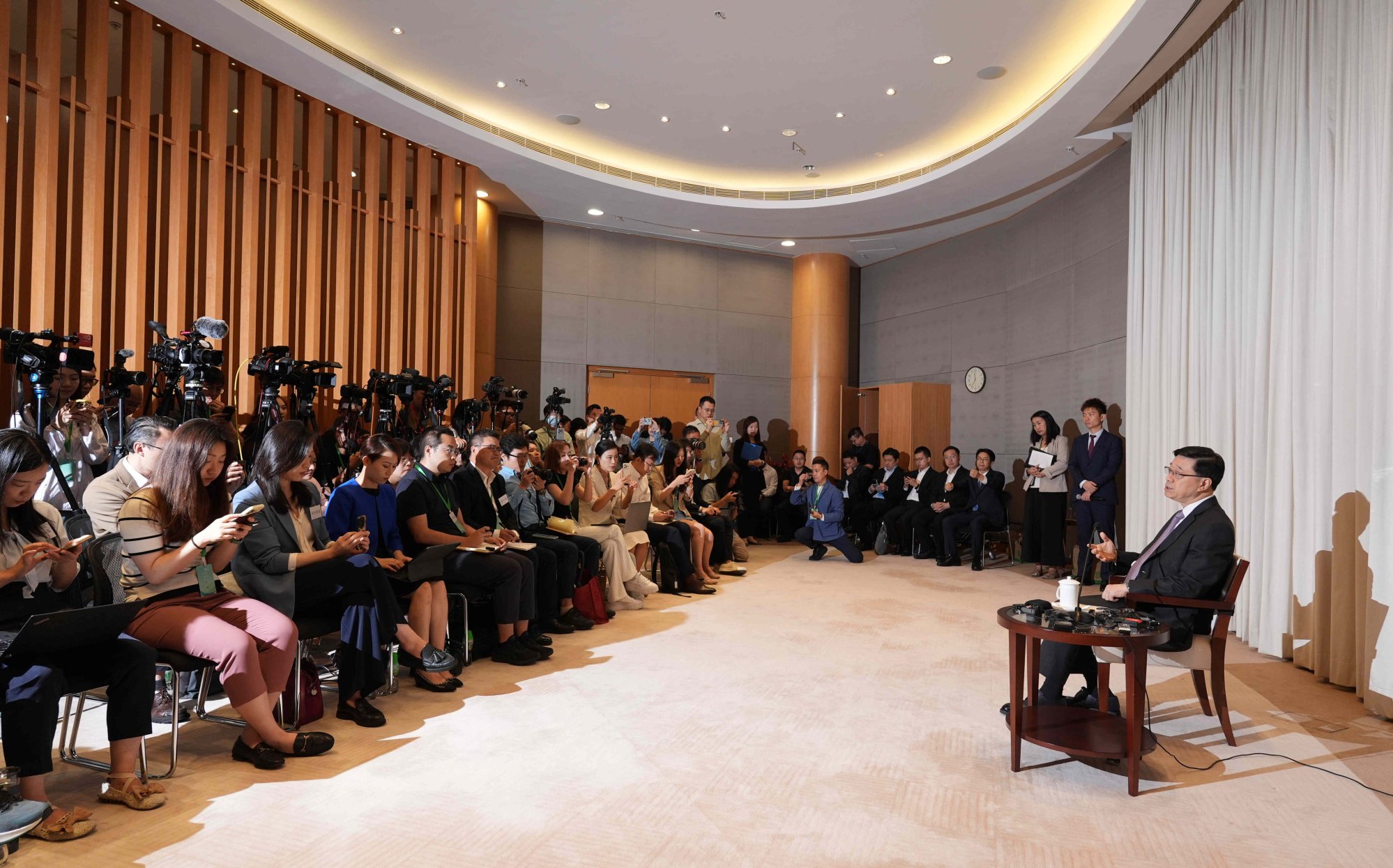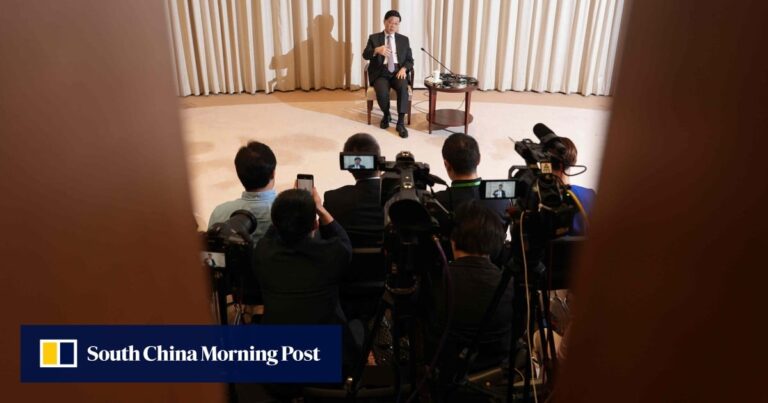Without naming any specific countries, he added: “Some of the challenges are caused by external forces attacking our legal system or interfering in our judicial processes.”
“In cases where the case is pending trial, foreign politicians and governments are trying to pressure and intimidate judicial authorities with so-called sanctions. This is an affront to the rule of law.”
Lee defended the city’s judicial decision as “fair and honorable.”
His remarks came as outgoing British Judge Jonathan Samptim faced harsh criticism from the central government and Hong Kong authorities for attacking the rule of law in Hong Kong.
In an opinion piece, Samptimon, a retired non-permanent judge of the Court of Final Appeal, wrote that Hong Kong was “gradually becoming a totalitarian state” and that “the rule of law is seriously eroded in all areas of great concern to the government.”
His views were echoed in part in the European Union’s executive body’s annual report on Hong Kong, released on Thursday, which argued that the rights and freedoms of Hong Kong residents continue to be eroded as Beijing’s national security law is used to stifle dissent.

Lee also addressed concerns about Hong Kong’s status as an international financial centre, saying the city’s power extends beyond its stock market.
He noted that Hong Kong has served as a platform for companies to raise capital by bridging listing rules with mainland China, and that it is home to three-quarters of the world’s top 100 banks and also has a thriving insurance industry and bond market.
However, Li acknowledged that such a robust financial infrastructure could be affected by changes in international politics, adding that some investors are withdrawing their funds.
“This seems to me like a political gesture. [money] “They are leaving Hong Kong for political reasons, not economic reasons,” Lee said.
However, the mayor said investors need not worry about political turmoil when making long-term investments.
“There may be ups and downs, but in the long run, political influence and undue impact on the market will not last long. If investors look at the market in the long run, they will find that the market is always right. Politics will not affect the market in the long run,” Lee said.
He added that he was confident Hong Kong’s connections with mainland China and the rest of the world would prove invaluable in the market.
Hong Kong’s Monetary and Financial Secretary Christopher Hui Ching-yu told reporters at a separate briefing that Hong Kong would develop its financial services in line with global trends toward asset diversification and a shift toward green finance and the digital economy.
The finance minister described Hong Kong’s ties with mainland China and the rest of the world as “two sides of the same coin”, saying they mutually reinforce Hong Kong’s status as an international financial centre.
“[W]”What we are trying to do is strengthen our ties with mainland China because, ultimately, in that context, we will attract more global investors to Hong Kong,” Hui said.
Hong Kong has three mutual market access programmes with mainland China, allowing Hong Kong and overseas investors to access certain mainland Chinese stocks, bonds and exchange-traded funds.

